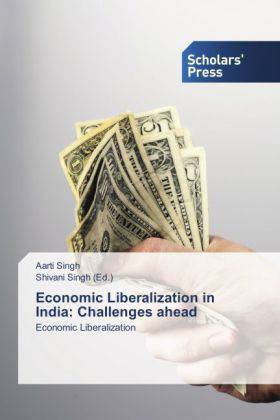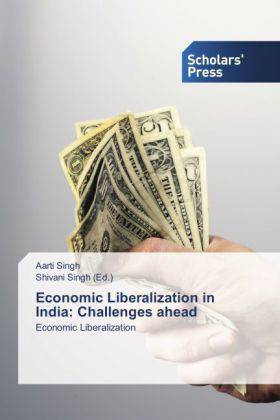
Door een staking bij bpost kan je online bestelling op dit moment iets langer onderweg zijn dan voorzien. Dringend iets nodig? Onze winkels ontvangen jou met open armen!
- Afhalen na 1 uur in een winkel met voorraad
- Gratis thuislevering in België vanaf € 30
- Ruim aanbod met 7 miljoen producten
Door een staking bij bpost kan je online bestelling op dit moment iets langer onderweg zijn dan voorzien. Dringend iets nodig? Onze winkels ontvangen jou met open armen!
- Afhalen na 1 uur in een winkel met voorraad
- Gratis thuislevering in België vanaf € 30
- Ruim aanbod met 7 miljoen producten
Zoeken
€ 45,45
+ 90 punten
Omschrijving
"Liberalization" is not just some policy option that the government chooses, like choosing a particular tariff rate or a particular price policy. It is a major episode in the history of class struggle. It corresponds to a new phase of world capitalism with new class configurations. To discuss the effects of "liberalization" without taking into account this entire class context, in terms exclusively of textbook propositions about the benefits of trade is both naive and banal. The thrust of the present wave of "liberalization" which is sweeping the entire third world is three-fold: to shift the balance away from the workers, peasants, petty producers and even small capitalists towards large capitalists both domestic and foreign; to shift the balance away from domestic capital in general towards foreign capital; and to shift the balance away from capital-in-production towards capital-as-finance. To be sure, different countries are at different stages in this process, which is carried forward by a combination of forces driven by international finance capital whose chief spokesmen are the Bretton Woods institutions.
Specificaties
Betrokkenen
- Auteur(s):
- Uitgeverij:
Inhoud
- Aantal bladzijden:
- 52
- Taal:
- Engels
Eigenschappen
- Productcode (EAN):
- 9783639712162
- Verschijningsdatum:
- 6/03/2014
- Uitvoering:
- Paperback
- Formaat:
- Trade paperback (VS)
- Afmetingen:
- 152 mm x 229 mm
- Gewicht:
- 90 g

Alleen bij Standaard Boekhandel
+ 90 punten op je klantenkaart van Standaard Boekhandel
Beoordelingen
We publiceren alleen reviews die voldoen aan de voorwaarden voor reviews. Bekijk onze voorwaarden voor reviews.











